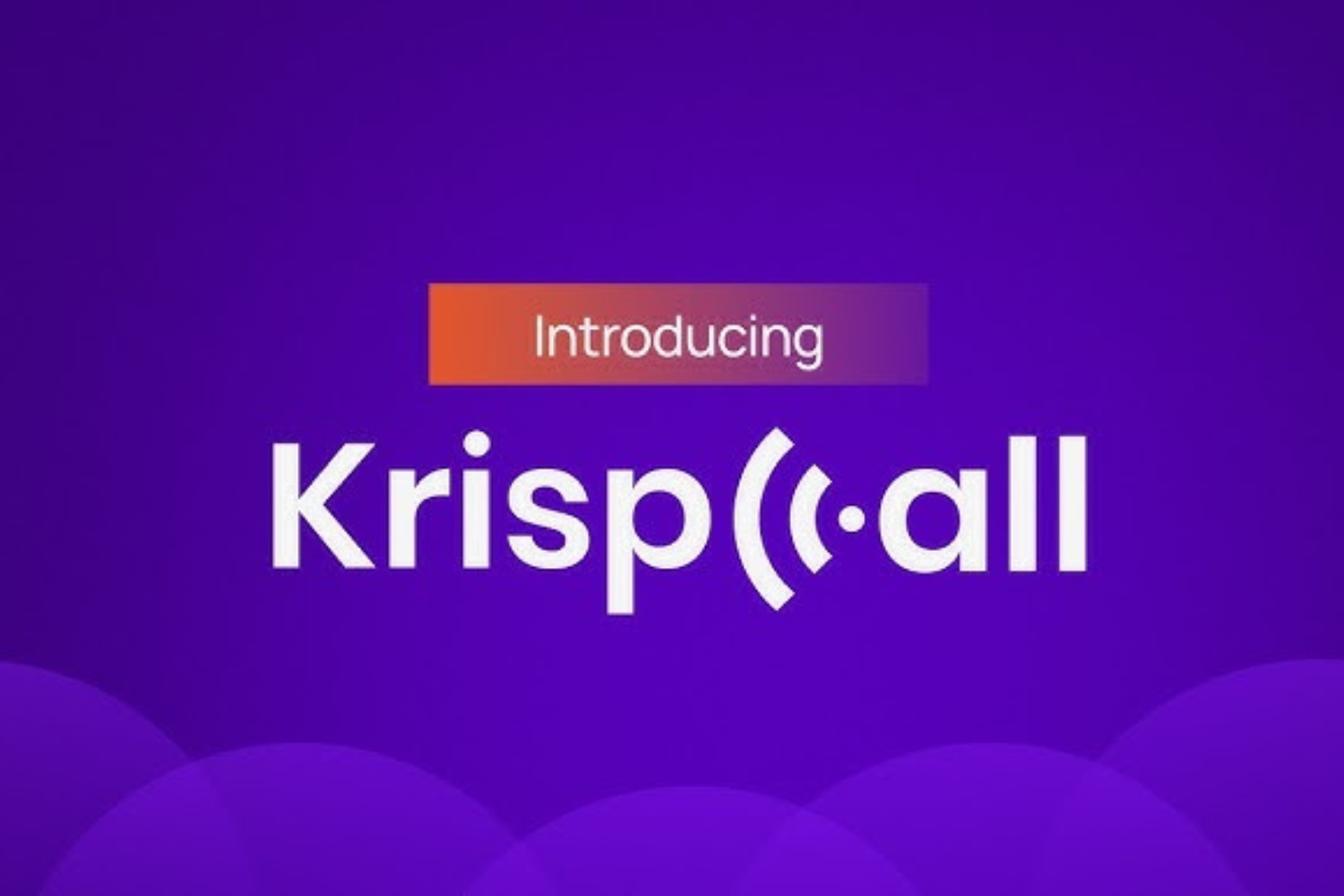If your website gets bigger, your chances increase to face Keyword Cannibalization on your own website. You’ll be writing about your favorite subjects, and without even knowing it, you’ll write articles that end up somewhat similar. That’s what happened to our website sometime back too. Thus, occasionally, you should check the keywords you want to rank for the most.
An example of Keyword Cannibalism is when a website has multiple pages that compete for the same or similar keywords. If we have two pages on Technical SEO, there is a cannibalization issue when combining the two pages to gain more organic traffic. The existence of those two pages is harming our organic performance. Unfortunately, it’s one of the less-understood SEO concepts.
It’s always important to make sure that you check whether you’re suffering from keyword cannibalism. You’ll probably need to make some changes in your site structure or rewrite some articles now and then. If you optimize your articles for similar terms, your rankings might suffer from keyword cannibalization: you’ll be ‘devouring’ your chances to rank in Google!
Especially when your website is growing, your content will likely start competing with itself. Whether you reach your audience through AdWords or organic search, the keywords you pick for your search engine marketing campaign greatly impact your response rate, costs, and results. Search keywords have variations and delivery types, from match types to buying intent.
Getting To Know What Keyword Cannibalization Is All About In SEO Audit
To enumerate, Keyword Cannibalization occurs when you have too many identical or similar keywords spread throughout the content on your website. As a result, a search engine like Google or Bing, or Yandex can’t discern which content to rank higher. This means that sometimes these SERPs will give a higher ranking to the website page you don’t intend to prioritize.
So, Keyword Cannibalization means that you have various blog posts or articles on your site that can rank for the same search query in Google. Either because the topic they cover is too similar or because you optimized them for the same key phrase. If you optimize posts or articles for similar search queries, they’re eating away at each other’s chances to rank.
Usually, Google will only show 1 or 2 results from the same domain in the search results for a specific query. If you’re in a high authority domain, you might get 3. Normally, as your site grows, you’ll have more and more posts. Some of these posts are going to be about a similar topic. Even when you’ve always categorized it well, your content might be competing with itself.
As a result, you’ll be suffering from keyword cannibalization. At the same time, some of your articles might get out of date. Finding and fixing keyword cannibalization issues should be part of your content maintenance work to prevent all of this.
Why Keyword Cannibalism Is Bad For Website Search Engine Optimization
It’s important to realize that in an ideal world, each page on your website would target a specific keyword, but as websites age and more content gets published—it can be harder for Google to decide which page of your website is best to rank for a specific query. The keyword cannibalization report is helpful to run as part of a full website content SEO audit strategy.
If you cannibalize your keywords, you’re competing with yourself for ranking in Google. Let’s say you have two posts on the exact same topic. In that case, Google can’t distinguish which article should rank highest for a particular query. In addition, important factors like backlinks and Page CTR get diluted over several posts instead of one.
And, as a result of this, they’ll all probably both rank lower. Fortunately, a quality SEO analysis tool like Yoast SEO will give a red bullet whenever you optimize a post for a focus keyword you’ve used before. But keyword cannibalism can also occur if you optimize posts for focus keywords that are not exactly, but almost the same.
For instance, let’s say I write two posts about whether or not readability is a ranking factor. And then, the post ‘Does readability rank?‘ was optimized for [does readability rank], while the post ‘readability ranks!‘ was optimized for the focus keyword [readability ranking factor]. The posts had a slightly different angle but were still very similar.
For Google, it is hard to figure out which of the two articles to consider. In a lot of cases, solving keyword cannibalization is going to mean deleting and merging content. Fixing keyword cannibalization is just one piece of an SEO puzzle.
How Do You Recognize Keywords Cannibalism Potential In Your Content?
End of October 2017, Google decided to make search results more local and relevant by using your location data and disabling ccTLDs. In that case, you can not use, e.g., google.com.br (Brazil) in the U.S. to see Brazilian search results. As a side effect, you can use any Google-ccTLD (e.g., google.com and google.de) and will see the same results.
Fortunately, there are multiple ways to get around this. The most realistic way is probably to use a VPN to change your IP Address and, therefore, your perceived location (drawback: this will cost you money). Still, you also may use the Chrome DevTools “Sensors” geolocation option (drawbacks: this doesn’t change the language and is quite tedious if you want to check many places).
You also could use another Chrome Plugin known as the gs location changer (drawbacks: Chrome-only and permissions to google.com data of your browser). On that note, Valentin is an application tool that enables you to set up a location with much bigger precision and provides a more extensive list of country/region options.
Get Started For Free: Use The Local & International Google SERP Checker
Checking whether or not your website suffers from keyword cannibalism is easy. You search your website for any keyword you suspect might have multiple results. In our case, we’ll google the site: josephmuciraexclusives.com readability ranks. The first two results are the articles we alleged to suffer from cannibalization. This is something you can experiment with on your website.
Googling ‘site:domain.com “keyword” will give you an easy answer to whether you’re suffering from keyword cannibalism. You can check your findings by typing the same keyword into Google (using a private browser or local search result checker like the Valentin app, to be precise)—an easy way to get localized SERPs at an exact location without additional tools.
Related Topic: How to Index New Website Content in SERPs | 5 Key Steps
So, which of your pages do you see in the search results, and what position do they rank? Of course, if two of your pages for the same keyword rank #1 and #2, that’s not a problem. But do you see your articles, for example, on positions 7 and 8? Then it’s time to sort things out!
The easiest way to see where Google believes you are is to search for [where am i] (without brackets). You should see a Google Maps Onebox showing your location on the map. Also: If you scroll to the end of the desktop search result page, Google tells you which source location it uses.
The Simple Steps To Help Solve And Manage Any Keyword Cannibalization
On the one hand, as a local business owner or manager, you likely offer your goods or services to a local market, but you could potentially serve the entire world, reaching a global market. In turn, of course, the entire world also becomes your competition. So, for ease of use and high search rankings, it’s more important than ever that you correctly use keywords.
On the other hand, if you use search engine optimization, your choice of keywords can be the difference between a lucrative website that ranks for high-value keywords and months spent on keywords that don’t convert. This is where the basics of keyword planning should come in handy, like selecting keywords that drive organic traffic to your website.
As well as understanding the difference between informational, product-focused buying, and non-commercial keywords. In other words, keywords are the foundation of any effective search campaign, and selecting the right ones to target is essential for success. If you’re thinking: “That’s a lot of work!” Yes, finding and fixing keyword cannibalization requires some serious effort.
And we don’t write about just keyword research, so this is a process we have to do for quite a few terms, multiple times a year. This is a very repeatable content maintenance strategy, though: For you to find and fix cannibalization issues, there are a few steps you should take. And then, “all” you have to do is go through that process at least once a year for every vital cluster of keywords.
Consider the following basic principles:
- Use the right tool to help you manage keywords,
- Audit your content to know which content you have,
- Analyze content performance to see how your content performs,
- Decide which content to keep and what to throw away
- Act, merge, delete, redirect, and track your performance
The first two steps will help you to decide which articles to keep and which ones to merge or delete. In many cases, the acting part will consist of combining and deleting articles, but also improving internal linking on your site. You can learn why to use your focus keyword only once in detail.
Good content is always going to be the most important factor in getting a good ranking. For this reason, ensuring you don’t keyword cannibalize will help you better spotlight your intended content. And, as a result, get all the attention it deserves. Below are some methods to Solve Keyword Cannibalization.
Step #1: Work on Accidental Duplicate Content
Duplicate Content is content that appears on more than one online location, meaning different websites. If you publish your own content in more than one place, you have duplicate content. If you copy someone else’s content onto your site or if they publish yours on their site, that’s duplicate content.
A Search Engine like Google can have a difficult time determining which content is more relevant to a query in the search engine when content is too similar. The goal of search engines is to give users the best results possible when they search for a particular term. Google and other search engines may choose to exclude duplicate content from their search engine queries.
Learn More: How to Check for Duplicate Content: Tools and Tips
In many cases, the use of duplicate content is neither intentional in nature nor intended to be malicious. Google refers to duplicate content as blocks of text that are identical or “appreciably similar” within or across domains. Examples of non-malicious duplicate content include store item descriptions and printer-only versions of web pages.
Deliberate duplication of content is another matter. When the same content is used on multiple domains in an attempt to increase traffic or manipulate search engine rankings, it can be frustrating for people who are attempting to search for information. And then end up getting the same content in multiple places. This is why search engines do their best to discourage this practice.
Step #2: Audit, Merge, Combine, or Delete Articles
If two articles both attract the same audience and basically tell the same story, you should combine them. Rewrite the two posts into one amazing, kickass article. That’ll help your rankings (Google loves lengthy and well-written content) and solve your keyword cannibalization problem.
In fact, that’s exactly what we did with our two posts on readability being a ranking factor. In the end, you’ll delete one of the two articles and adapt the other one. Use the Yoast Duplicate Post plugin to clone one of the posts and work from there. And don’t forget: don’t just press the delete button; always make sure to redirect the post you delete to the one you keep!
If that’s something you’re struggling with, Yoast SEO Premium can help: It makes creating redirects easy as pie! Of course, deleting web content is quite extreme, but you may want to consider entirely deleting problem web content – especially if it is no longer relevant to your website.
If your business has grown, and somehow that older, less professional, personal blog post using certain keywords is still ranking higher than your desired web content, then delete the content. If the content no longer exists, then there’s no problem.
Step #3: Change Inbound Link Requests
Changing inbound link requests is one of the harder forms of cannibalization to address, but it can be very important. Another factor that SEO considers when ranking search results are how many other people have linked back to your content. After doing a search on your website, you may find the reasons why less important content is still ranking higher than your newer ones.
In terms of more relevant content, other websites are still creating those links. If you have the means and the time, and especially if those links are with very influential websites, you can use software to track backlinks. And then, contact the webmasters to request that they change or delete the links.
In the ideal situation, they will exchange the old links you don’t want with the new ones that you’re seeking to prioritize. And, one thing is for sure, you can actually strengthen your SEO ranking as a result. Always remember, current search algorithms are far more sophisticated and discerning when it comes to assigning search ranks.
If you want to maintain some specific content for other reasons and the presence of a keyword isn’t critical, then removing it is always an option. This may be a slower, more tedious way of doing things — manual solutions usually are — but it has the virtue of being very simple and easy to implement.
Step #4: Improve Internal Linking
If you have web content that links to other content on your website, then the links themselves may be elements that you can improve. For search engines like Google, links establish importance, so if you include a link to another piece of content or web page, a search engine might rank the linked content higher.
You can help Google to figure out which article is most important, by setting up a decent internal linking structure. You should link from posts that are less important, to posts that are the most important to you. That way, Google can figure out (by following links) which ones you want to pop up highest in the search engines.
Try adding or changing the internal linking of your website so that less important content links to the content you want to highlight and prioritize. By doing this, you send a signal to the search engine results page, (SERP) that the linked content is the one that should be prioritized. Doing well on SERP is still very important.
Your internal linking structure could solve a part of your keyword cannibalism problems. You should think about which article is most important to you and link from the less important long-tail articles to your most important article. Read more about how to do this in my article about ranking with cornerstone content.
Step #5: Avoid Keyword Stuffing
In the past, search engines were much simpler. They conducted searches and assigned rankings based on very simple criteria. This eventually led to rampant abuse of the SERPs as techniques like “keyword stuffing” became widespread.
Google used to think that the content on a web page might be relevant if it used a keyword often, so unscrupulous content producers would simply include the same word hundreds–or even thousands–of times to boost search rankings.
Today, Keyword Stuffing is one of the worst things you can do, and it will hurt your search rankings. To enumerate, Keyword Stuffing is when a brand fills or “stuff” a webpage with the same target term in hopes of ranking higher for that term in search engines. While not as popular as it was a few years ago, it’s still used by some brands to try to boost their search visibility.
However, modern algorithms react harshly to deliberate keyword stuffing. And keyword cannibalization is an occasional side-effect of this effort to punish keyword stuffing with lower search rankings. That’s why you should learn more about How Keyword Stuffing Affects Site SEO with the best solutions to use.
Online Shops Keyword Cannibalization
Now, if you have an online shop, you might be worried about all those product pages targeting similar keywords. For online shops, it makes sense that there are multiple pages for products that are alike. It’s very important to give site structure some thought in this case.
A good strategy is to link back from every product page to your category page – the page you should optimize to rank. And keep an eye on old product pages that could potentially cannibalize more important pages, and delete and redirect those – Yoast SEO Premium could help make that easier with its handy redirect manager!
Overall, it’s quite easy to identify possible keyword cannibalization problems on your website. Usually, conducting a search along the lines of “Domain + keywords” will provide you with the information you’re looking for. That’s it! Everything you need to know about Keyword Cannibalization.
In Conclusion;
Regarding SEO, these days, when people want to find something, whether it’s a product or a service, the first thing they reach for is a device connected to the internet so that they can conduct a search. Gone are the days when people would refer to paper-printed catalogs of products or consult the Yellow Pages to find a business or service they were interested in.
In fact, 70% of Americans today don’t even open their phone books when they receive new ones. However, with the ease of putting things online comes a new hazard: your content getting lost in an ocean of information. One thing is for sure, search engines can be fast and precise for users who know exactly what they’re looking for, but not when it comes to a general search.
Usually, narrowing down candidates to a smaller, more-manageable pool becomes more complicated. From match types to buying intent, search keywords come in many variations and types. Understanding the different types of keywords and how each can affect your results will help you optimize your campaign and reach the people that truly matter to your business.
If you use Google Ads to generate traffic, picking the right keywords can differentiate between a highly profitable campaign and a money-loser. Fortunately, in this article, we’ve explained why keyword cannibalism can be detrimental to SEO (Search Engine Optimization), how you can recognize it, and what to do. It’s now your turn to start doing things right from today.
Other More Related Resource Reference Topics:
- The Keywords That Count And How To Target Them
- What Is Keyword Density? How to Use the Keywords Right
- 15 Strategic Keyword Research Tools Plus 15 Focus Terms Type
- GS Location Changer Extension Plugin For Chrome And Firefox
- How Keyword Stuffing Affects Site SEO | 5 Auditing Solutions
- A Strategic Keywords Search Plan + Tools To Beat Competitors
That’s it! Do you think there’s something that is missing from this guideline? You’re welcome to share your insights, opinions, suggestions, recommendations, or questions in our comments section. But, if you need more help, you can Consult Us and let us know how we can sort you. And now, until the next one, thanks for visiting and reading this post; you are welcome!





Pretty! This has been a really wonderful post. Many thanks for providing these details.
I am truly thankful to the owner of this web site who has shared this fantastic piece of writing at at this place.
There is definately a lot to find out about this subject. I like all the points you made
Nice post. I was checking constantly this blog and I’m impressed! Extremely helpful information specially the last part 🙂 I care for such info a lot. I was looking for this particular info for a very long time. Thank you and best of luck.
I enjoy examining and I conceive this website got some genuinely utilitarian stuff on it! .
Thank you so much for your positive feedback.
We are so glad that the info was useful to you. We’ll keep more blog posts coming your way in the future.
Stay put and welcome back.